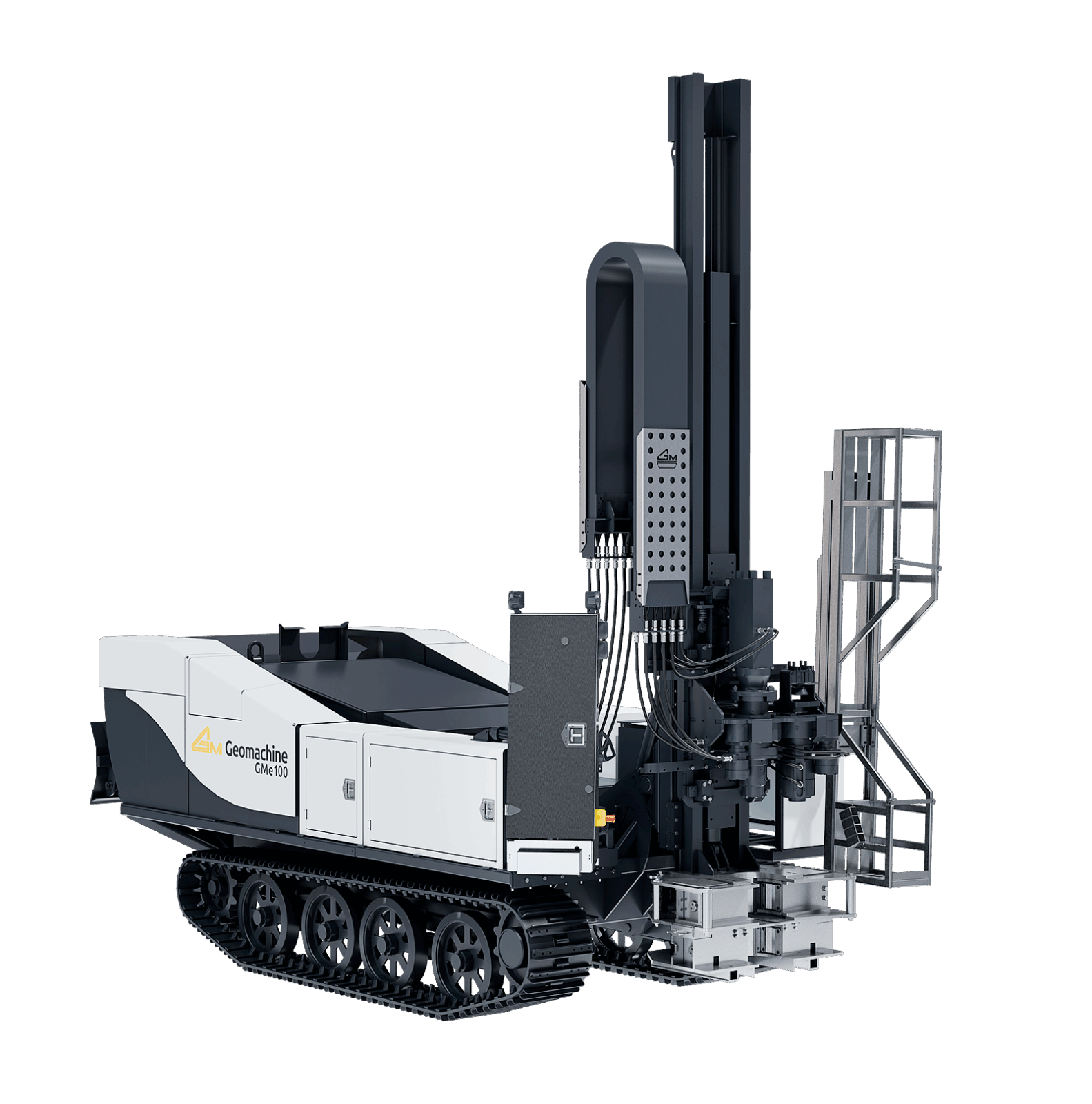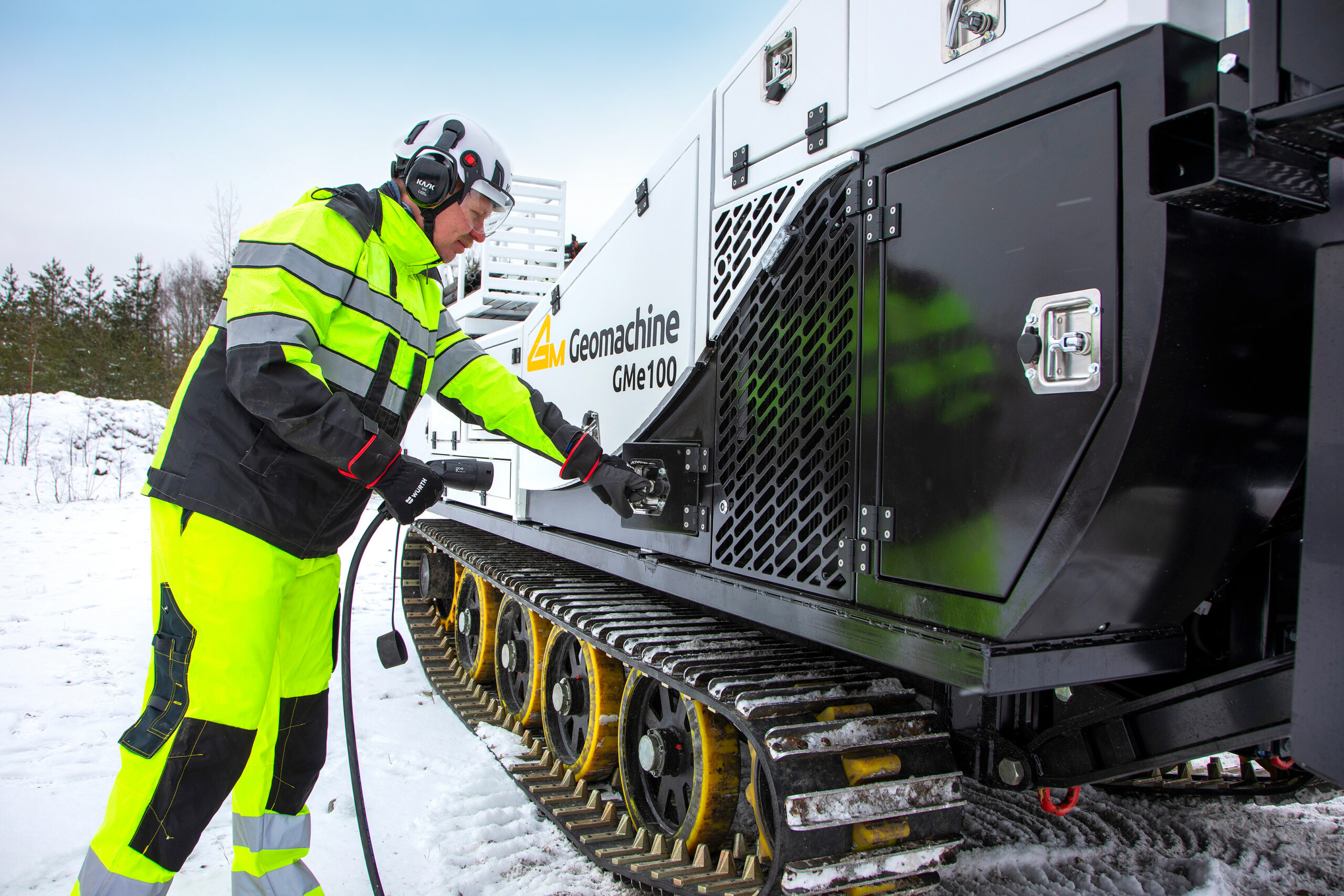Is an electric rig a smart investment?
03.09.2025
Geomachine Oy
The purchase price of an electric ground investigation rig is still higher than that of a diesel-powered one, which may lead some to question whether the investment is worthwhile. In this article, we explain why an electric rig is a smart long-term choice.
The price difference between diesel and electric ground investigation rigs is mainly due to the cost of batteries and the high-voltage components required by electric rigs. Although an electric motor is simpler and cheaper than a diesel engine, the control system for the motor and battery involves more components, which adds to the overall cost of the rig.
It’s reasonable to expect that as legislation continues to tighten to promote emission-free ground investigation, and as electrification becomes more widespread and battery demand increases, manufacturing costs will decrease. However, investing in an electric rig already makes sense. When comparing its purchase price to its total lifecycle cost, an electric rig is a sound investment even at current price levels.
Fewer breakdowns, more productive working days
Electric rigs require maintenance just like diesel versions, but electric motors need less attention due to their simpler structure. The motor is virtually maintenance-free—there’s no need for oil or filter changes, for example. In practice, servicing the electric powertrain involves inspecting the battery pack, components, cables and connectors. As with diesel engines, coolant must be replaced every two years.
Because there are fewer potential failure points in an electric motor, the result is naturally fewer unplanned downtime days. And downtime is costly—not only because of direct expenses, but also due to potential loss of revenue, late delivery penalties and reputational damage.

Meeting future demands
The most significant driver of electrification is increasingly strict legislation. The EU has already introduced Stage V emission limits, with even stricter regulations on the horizon. In the Nordics, cities like Oslo, Copenhagen and Stockholm already require zero-emission machinery on certain worksites. In public tenders, emission requirements such as compliance with at least Stage V standards or full zero emissions are becoming more common.
As legislation tightens, national and EU-level support for electrification is also increasing. In Finland, for example, the Ministry of Economic Affairs and Employment has funded electric machinery pilots, while at EU level, initiatives such as InvestEU and the Green Deal have offered funding for SMEs.
The ability of an electric rig to meet future legal requirements makes it a worthwhile investment for ground investigation companies that aim to look beyond the near future. Electric rigs are also more resilient to anticipated changes in fuel distribution over the next decade.
Perception matters, too
For a company to succeed today, responsible practices are no longer optional—they are expected. Not only authorities but also customers and stakeholders increasingly demand accountability. Investing in electric machinery is no longer just about image—it’s a practical response to modern-day expectations.
In addition to being an excellent technical choice, acquiring an electric rig also sends a powerful message: the company is a front-runner and pioneer in its field, committed to responsible business and long-term vision.
Interested? Contact Geomachine!

